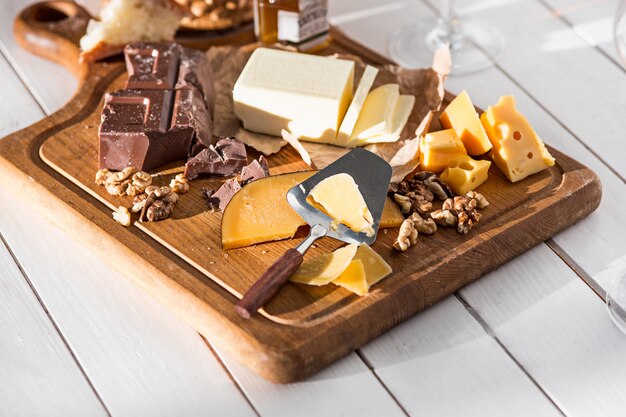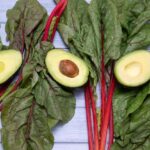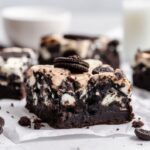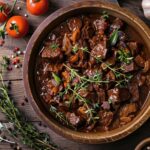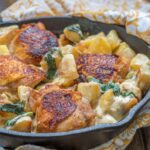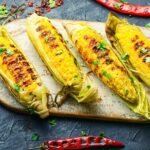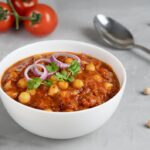Dandruff is a common scalp condition that can be frustrating to deal with, often caused by dry skin, fungal infections, or an overactive sebaceous gland. While external treatments like shampoos and oils can help, diet plays a significant role in controlling dandruff. Certain foods can trigger scalp inflammation, disrupt hormone balance, or contribute to dry skin, all of which can worsen dandruff. Here are 20 foods South Africans should avoid if they suffer from dandruff:
1. Sugary Foods
Excess sugar can cause inflammation and increase oil production, making dandruff worse. Avoid sweets, pastries, sugary drinks, and even hidden sugars in processed foods to keep your scalp healthy.
2. Dairy Products
Dairy products like milk, cheese, and butter can sometimes increase sebum production, leading to a greasier scalp and more dandruff. Some people are sensitive to the hormones in dairy, which can aggravate skin conditions.
3. Fried Foods
Fried foods, especially those high in unhealthy trans fats, can lead to an increase in scalp oiliness and inflammation. This can create an environment that promotes the growth of Malassezia yeast, a key cause of dandruff.
4. White Bread
Foods made with refined grains, such as white bread and pastries, have a high glycemic index, which can lead to increased oil production and scalp irritation. Opt for whole grains to help balance your scalp’s health.
5. Spicy Foods
While spice is a beloved part of South African cuisine, spicy foods can increase body temperature and cause sweating, which can exacerbate dandruff. If you suffer from dandruff, consider moderating your spice intake.
6. Red Meat
Excessive consumption of red meat can increase inflammation in the body, worsening skin conditions like dandruff. Try to limit your intake of fatty cuts of red meat and opt for leaner protein sources like chicken or fish.
7. Alcohol
Alcohol dehydrates the body, including the skin and scalp, leading to dryness and flakiness. Excessive alcohol consumption can also weaken the immune system, making it harder for your body to fight off the fungus that contributes to dandruff.
8. Soda
Sodas, whether regular or diet, contain sugars or artificial sweeteners that can cause inflammation and disrupt your scalp’s natural oil balance. It’s best to opt for water, herbal teas, or natural fruit juices.
9. Margarine
Margarine contains hydrogenated oils and trans fats, which can increase inflammation in the body and worsen skin conditions like dandruff. Replace margarine with healthier fats like olive oil or avocado.
10. Fast Food
Fast food meals are typically high in unhealthy fats, salt, and preservatives, all of which can increase scalp inflammation and dryness. Reducing fast food intake can lead to healthier skin and a flake-free scalp.
11. Chocolate
Chocolate, especially varieties high in sugar, can trigger scalp inflammation and disrupt the balance of oil production. Dark chocolate with low sugar content is a better alternative if you want to satisfy your sweet tooth.
12. Processed Foods
Highly processed foods such as canned soups, frozen meals, and ready-to-eat snacks often contain artificial additives and preservatives. These can affect your skin’s health, including the scalp, leading to more dandruff.
13. High-Sodium Foods
Foods high in sodium, such as salted snacks, pickled foods, and processed meats, can cause dehydration. A dehydrated scalp is more likely to become flaky and dry, which worsens dandruff.
14. Caffeinated Beverages
Excessive consumption of caffeine from coffee, tea, or energy drinks can dehydrate your skin and scalp. This can lead to dryness, making dandruff more prominent.
15. Full-Fat Cheese
Cheese, particularly full-fat varieties, can cause an overproduction of oil in the scalp. Excess oil can trap dead skin cells, contributing to dandruff. Opt for lower-fat cheese or alternatives like plant-based versions.
16. Eggs
While eggs are a great source of protein, they can cause flare-ups in people who are sensitive to biotin-rich foods. If you notice more dandruff after consuming eggs, consider reducing your intake and see if symptoms improve.
17. Peanuts
Peanuts and peanut butter contain high levels of fats that can increase scalp oiliness. For some people, peanuts can also trigger allergic reactions, leading to itchy, flaky scalps.
18. Refined Carbs
Refined carbohydrates like white rice, pasta, and baked goods can spike blood sugar levels, leading to inflammation that affects the scalp. Opt for whole grains like brown rice and quinoa for a healthier diet.
19. Corn and Corn Oil
Corn oil and corn-based products contain omega-6 fatty acids, which, when consumed in excess, can cause inflammation. A diet high in omega-6 can disrupt the balance of oils in your scalp, leading to dandruff.
20. Artificial Sweeteners
Artificial sweeteners like aspartame, found in diet sodas and low-sugar snacks, may contribute to skin inflammation and dryness. Some people are sensitive to these sweeteners, which can aggravate dandruff.
Dandruff can be managed by making conscious dietary choices. Avoiding inflammatory foods and those that disrupt your scalp’s natural oil balance can help reduce dandruff and improve the health of your scalp. Focus on eating a balanced diet rich in fruits, vegetables, whole grains, and lean proteins to support overall skin health and prevent dandruff. By making these changes, you may find that your dandruff becomes more manageable, or even disappears altogether.
